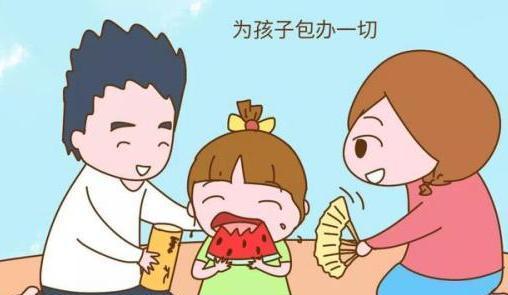Excessive indulgence in childhood can lead to harmful consequences in adulthood
Occasional indulgence is fine, but when indulgence becomes a pattern or ritual, it becomes a problem.
These 16 are specific risks for parents to overindulge their children.

What is childhood overindulgence?
Excessive indulgence in children is:
Give your child too many things that look good, too soon, too long.
Give them things or experiences that don't fit their age, interests, or talents.
Give the child something that meets the needs of the adult, not the needs of the child.
Provide disproportionate family resources to one or more children in a way that seems to meet their needs but is not.
Doing or having so many things can cause positive harm to a person, or at least bring a person to a standstill and deprive that person of reaching his or her full potential.
Overindulgence is a form of neglect of children. It prevents children from mastering the developmental tasks they need and learning the necessary life lessons.
Overindulgence occurs in three different ways: (1) too much, (2) overcultured, and (3) structurally too soft.
Occasional indulgence adds color, pleasure and joy to life. However, when the same indulgence becomes a pattern, the results are very different. This pattern is called overindulgence. (Clark et al., 2014, p. 5)
I don't believe any parent wants to raise an overly indulgent child and the child's sense of entitlement is exaggerated. Doing so can lead to negative outcomes later in life, such as:
1. They are trapped in the center of their own universe: Children should understand as early as possible that the world will not always focus on them.
2. Development of disrespectful attitudes: Disrespect for one's own things can easily lead to disrespect for other people's things.
3. Learned helplessness: Doing what children should learn to do deprives them of the opportunity to learn how to be competent.
4. Confusion between want and need: Young children cannot distinguish the difference between want and need, and must be carefully taught.
5. They develop an excessive sense of entitlement: Adults who were overindulged as children often felt entitled to more and that they deserved more than anyone else.
6. Increased sense of irresponsibility: Constantly protecting children from experiencing the consequences of their actions and not holding them accountable for the completion of their tasks leads to irresponsibility. When overindulgeful children grow up, they have no interest in making the world a better place and are unwilling to help people improve their lives unless they are rewarded.
7. Lack of gratitude: Soft structures in the family can lead to an individual's lack of gratitude for things and others. They feel like they don't have much to be thankful for, and they can't appreciate the people, events, and situations that have become a part of their lives.
8. Poor self-control ability: Parents need to insist on letting their children learn self-management skills, including delayed gratification. Helicopter parenting hinders the development of self-control skills associated with school burnout.
9. Lack of meaningful relationships: Problems caused by excessive indulgence, such as poor ability to resolve conflicts and expectations of immediate gratification spill over into all other forms of relationships, from friends to family to the workplace.
10. Development of material values that lead to unhappiness: Children who are overindulged as children are more likely to develop material values (selfishness and greed) in adulthood and become unhappy when they grow up.
12. Issues related to personal life goals: Studies have shown that the more a person indulges themselves as a child, the more likely it is that their personal life goals are external motivations – fame, wealth, vanity – rather than intrinsic desires such as development. Character and cultivating meaningful relationships.
13. Lack of spiritual involvement: Children who are overindulge are more likely to become adults who are not interested in spiritual growth, have difficulty finding meaning in difficult times, and are less likely to develop personal relationships with forces greater than themselves. 8,9
14. Depressed and dysfunctional thinking: Childhood overindulgence in emerging adults has been linked to depression, dysfunctional thinking, and college burnout.
15. Financial problems: Children with excessive indulgence have difficulty in managing their finances when they grow up, and often carry excessive debts. Arguments about money became a central feature of their adult relationships.
16, the parent's sense of incompetence: over-indulgent children grow up to become parents who do not know how to be parents. They tend to be tolerant or authoritarian and lack a sense of competence in parenting.